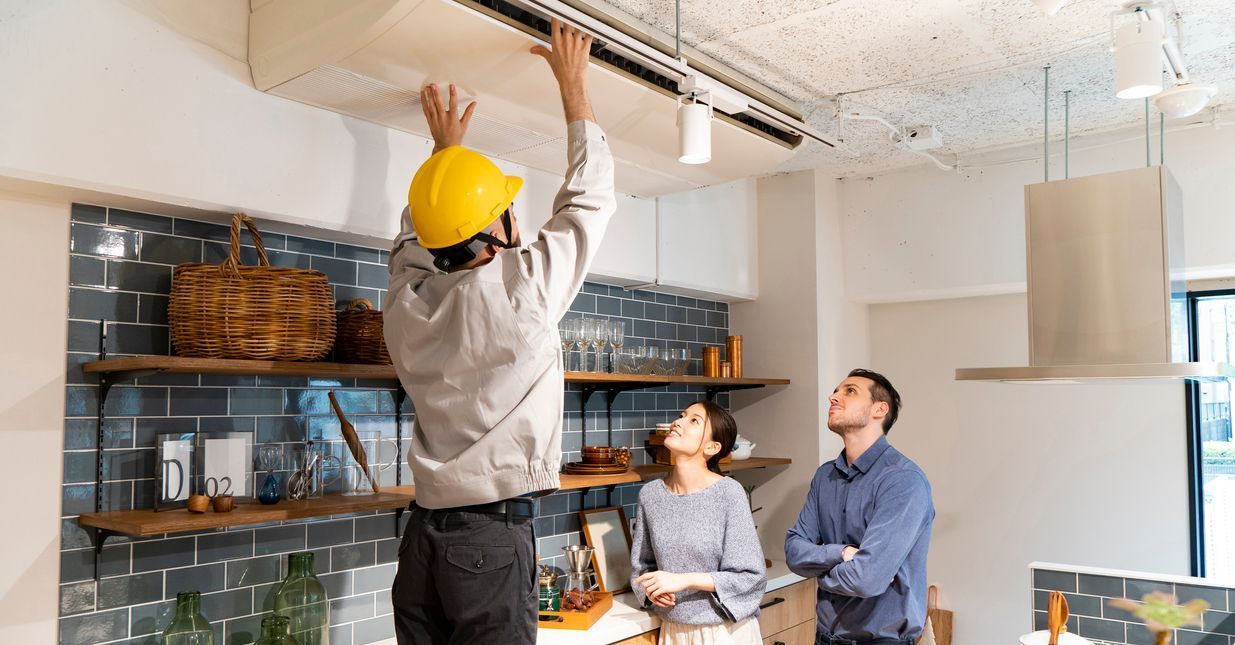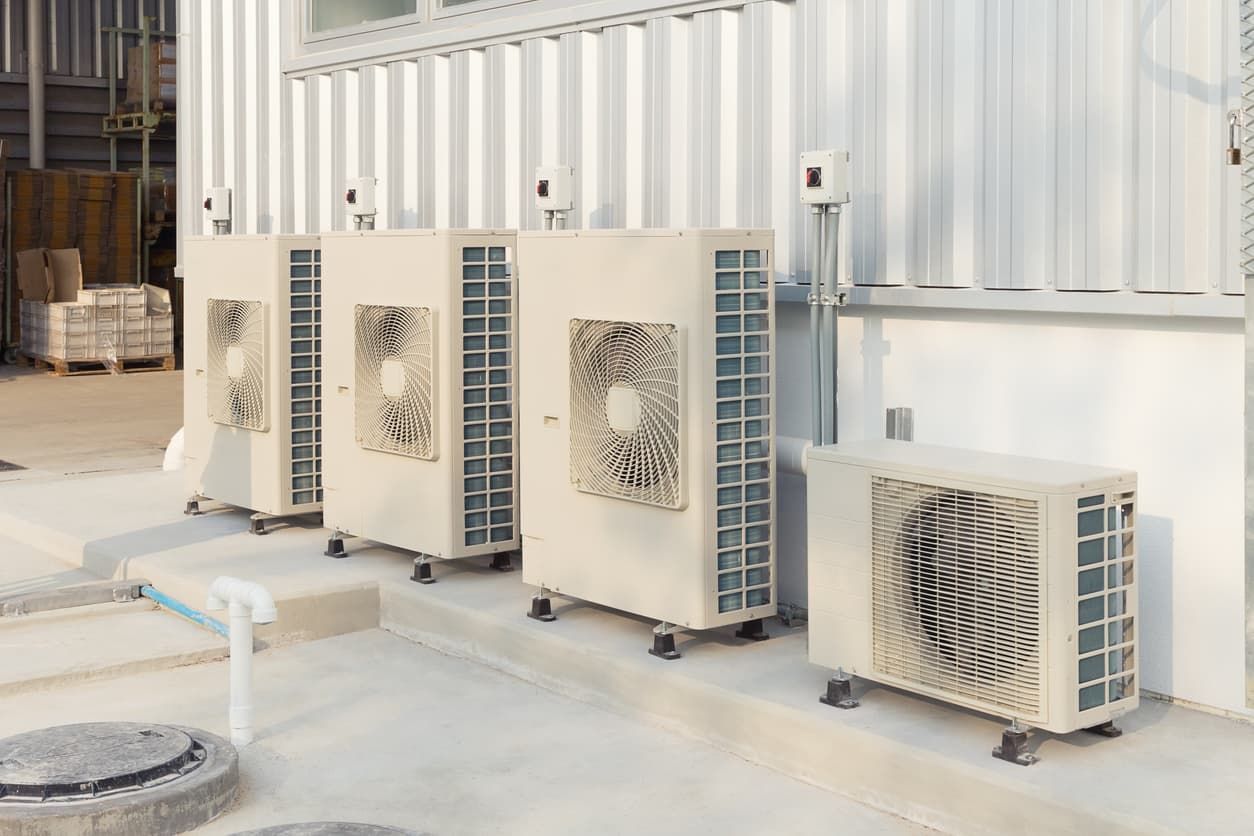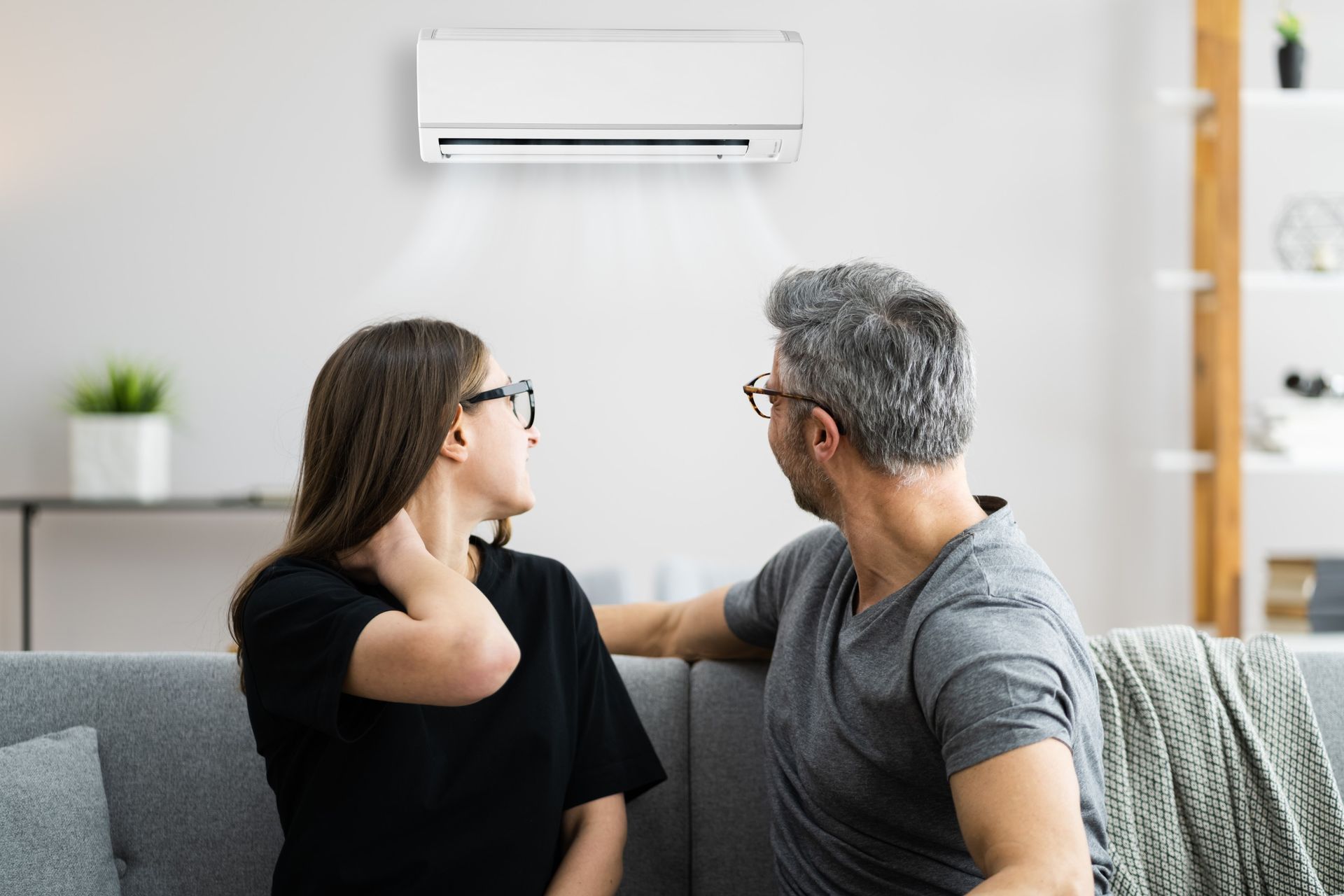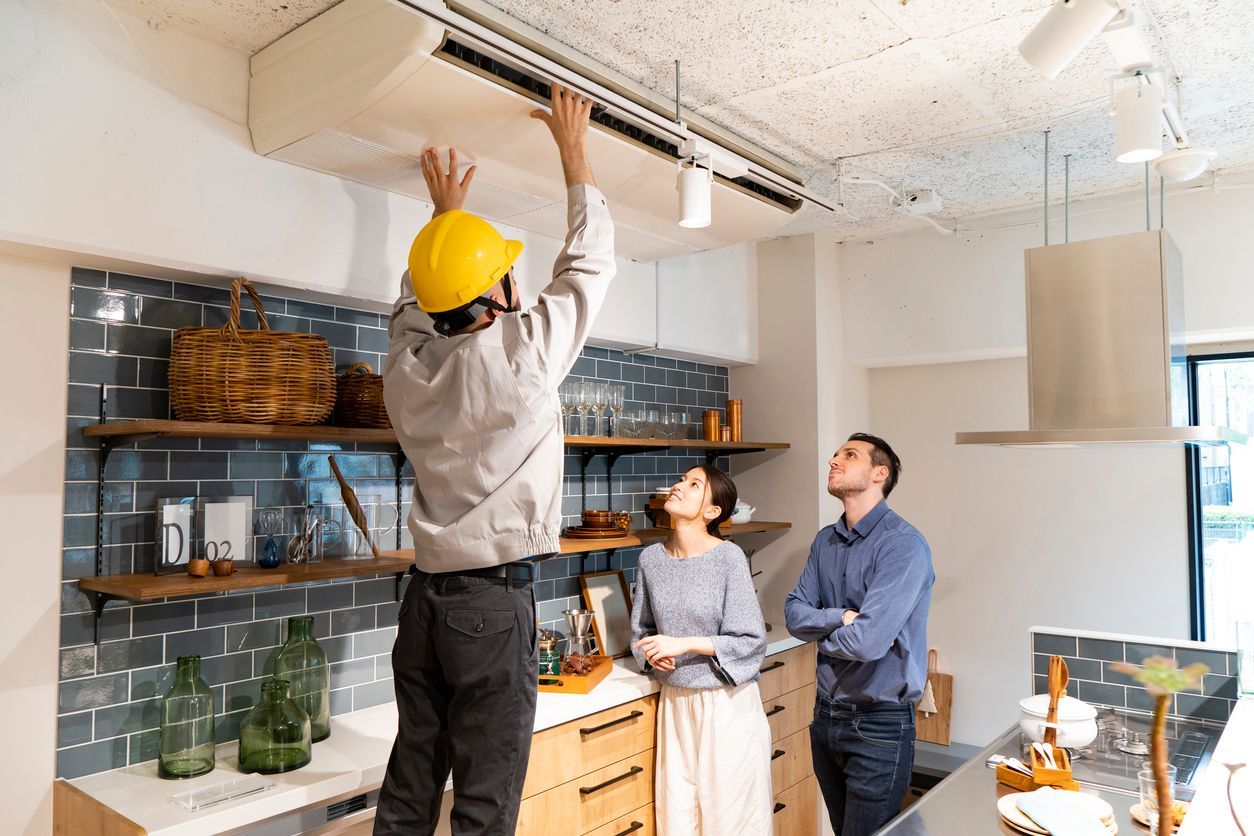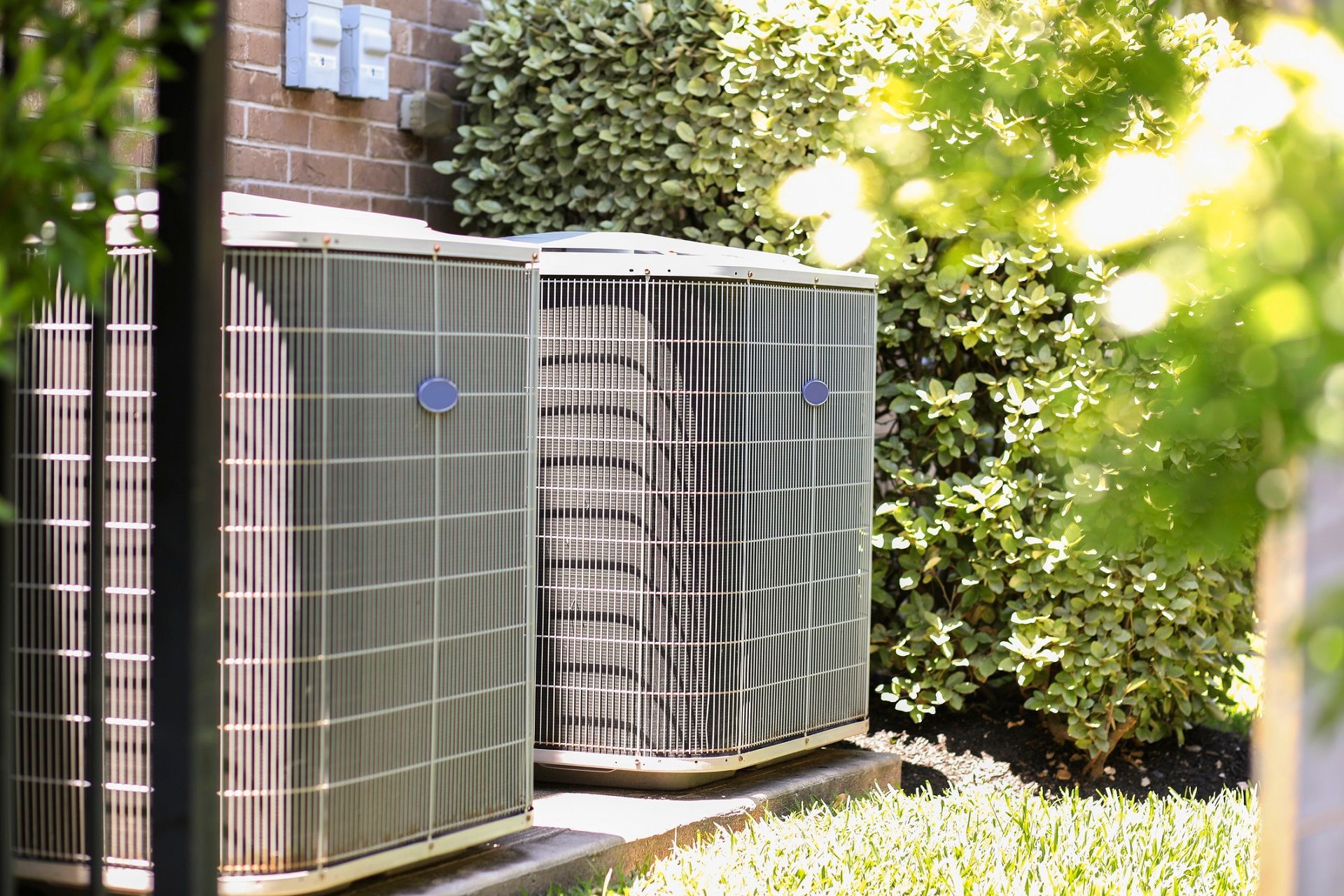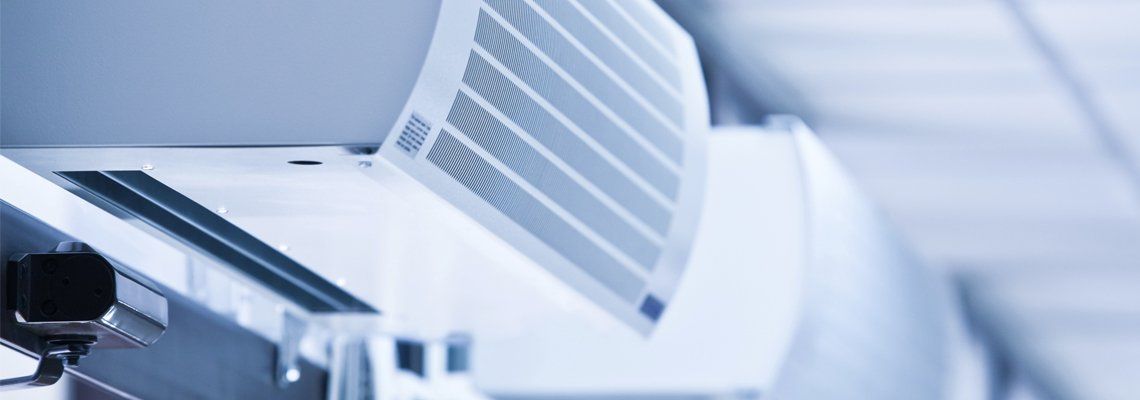1200 S West Blvd, Vineland, NJ 08360
damatoplumbing@gmail.com
damatoplumbing@gmail.com
Call Us Today!

Blog
Blog
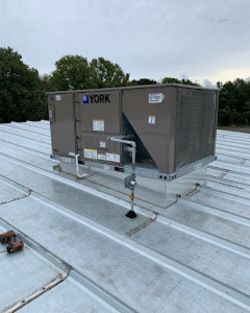
By Chuck D'Amato
•
February 7, 2025
Maintaining a comfortable and healthy home environment is a top priority for most homeowners. One of the most crucial aspects of achieving this is ensuring your HVAC system is in excellent working condition. Heating, ventilation, and air conditioning (HVAC) systems are responsible for maintaining the ideal temperature and air quality in your home, making them essential for daily comfort. However, like any other mechanical system, HVAC units require regular service and maintenance to keep running smoothly. In this blog, we’ll explore why regular HVAC service is so important for your home comfort. Working with a trusted HVAC contractor in Vineland, NJ can make all the difference in the long-term performance of your heating and cooling system. Regular maintenance not only ensures comfort but also extends the life of your system, saves energy, and prevents costly repairs. The Importance of Routine HVAC Maintenance Your HVAC system is responsible for more than just heating and cooling your home; it also regulates indoor air quality, which can significantly affect your health. Regular servicing by an HVAC installation contractor is key to preventing system failures, improving efficiency, and ensuring your home remains comfortable throughout the year. Here’s why regular maintenance is vital: Improved Energy Efficiency Over time, dust and debris can accumulate in your HVAC system, causing it to work harder than necessary to heat or cool your home. This leads to higher energy consumption and inflated utility bills. Routine service helps ensure that all components of your HVAC system are clean and working efficiently, which translates to energy savings. Extending the Lifespan of Your System Regular service can also help extend the lifespan of your HVAC system. Like any machine, an HVAC system will wear down over time, especially if it isn’t properly maintained. A well-maintained system can last 15 to 20 years, whereas a neglected one may need to be replaced much sooner. Having an HVAC repair service inspect and tune up your system regularly can prevent premature breakdowns and extend its operational life. Preventing Unexpected Breakdowns Few things are more frustrating than having your HVAC system fail in the middle of a hot summer or a freezing winter. Unfortunately, without regular maintenance, breakdowns can happen when you least expect them. Scheduling routine inspections helps identify and fix small issues before they turn into major, costly repairs. Maintaining Indoor Air Quality HVAC systems do more than regulate the temperature in your home—they also help filter and circulate air. Dirty filters, ducts, or coils can lower your indoor air quality, allowing dust, allergens, and pollutants to build up in your home. Regular cleaning and replacing air filters during service appointments can help you maintain healthy air quality, which is particularly important for people with allergies, asthma, or other respiratory issues. Compliance with Warranties Most HVAC systems come with warranties that protect homeowners from the financial burden of major repairs or replacements. However, these warranties often require regular professional maintenance. Skipping out on these service appointments could void your warranty, leaving you responsible for repair costs. By scheduling regular maintenance with a trusted HVAC installation contractor, you’ll not only ensure your system runs smoothly, but you’ll also maintain your warranty coverage. What Does Regular HVAC Service Include? You might be wondering what actually happens during an HVAC service appointment. These routine check-ups involve several key tasks designed to ensure your system is running as efficiently as possible: Inspection and Cleaning of Components Technicians will inspect and clean various parts of your HVAC system, including the coils, filters, and ducts, to prevent dust and debris from impeding the system’s performance. Thermostat Calibration Your thermostat plays a critical role in regulating your home’s temperature. If it’s not calibrated correctly, your HVAC system may run inefficiently. Technicians will test and adjust your thermostat to ensure it accurately measures and controls the temperature. Lubrication of Moving Parts Over time, the moving parts of your HVAC system can become worn and dry, which leads to friction and inefficiency. Lubricating these parts ensures smoother operation and reduces the risk of breakdowns. System Testing During a service visit, your HVAC system will be thoroughly tested to ensure it’s operating correctly. This includes testing the electrical connections, airflow, and refrigerant levels. Checking and Replacing Filters Air filters can become clogged with dirt and dust over time, which reduces your system’s efficiency and the air quality in your home. Regularly replacing filters is an easy way to keep your HVAC system running smoothly. How Often Should You Service Your HVAC System? To keep your HVAC system in top condition, it’s recommended to schedule service at least twice a year—once before the summer cooling season and once before the winter heating season. This ensures your system is prepared to handle the demands of extreme weather and helps avoid any performance issues when you need it most. If your system is older, you might want to have it serviced more frequently to ensure everything is working properly. Regular service is especially important if you’ve noticed unusual noises, inconsistent temperatures, or higher utility bills. The Risks of Skipping HVAC Maintenance While it might be tempting to skip regular HVAC maintenance, doing so can lead to serious consequences for both your comfort and your wallet. Here are some risks associated with neglecting routine service: Higher Energy Bills A poorly maintained system has to work harder to heat or cool your home, which results in increased energy consumption. Over time, the extra cost can add up significantly. Costly Repairs Small problems that are left unattended can quickly escalate into major issues that require expensive repairs. By addressing these problems early with regular service, you can avoid large repair bills. Shortened System Lifespan Without regular maintenance, the wear and tear on your HVAC system will take its toll much more quickly, leading to a shorter lifespan and the need for a replacement sooner than expected. Poor Air Quality Dirty filters, ducts, and coils can circulate dust, allergens, and other pollutants throughout your home. This can lead to respiratory issues and create an unhealthy living environment, especially for those with pre-existing conditions like asthma. Choosing the Right HVAC Contractor To ensure you get the most out of your HVAC service, it’s important to work with a qualified professional. A licensed HVAC contractor can provide expert service, helping you maintain the comfort and efficiency of your home. When choosing an HVAC contractor, look for the following: Experience and Certification Make sure the contractor has experience working with your type of HVAC system and is certified by the appropriate authorities. Good Reviews and References Customer reviews and references are valuable resources when choosing an HVAC contractor. Positive feedback from past clients can give you confidence in the quality of their work. Fair Pricing While you don’t want to choose a contractor based on price alone, it’s important to find one that offers fair, transparent pricing for their services. Responsive Customer Service A good contractor should be responsive to your needs and available to answer any questions you have about your HVAC system. Maintenance Plans Many HVAC contractors offer maintenance plans that include regular service visits at a discounted rate. These plans can help you save money while ensuring your system receives the care it needs. Final Thoughts In summary, regular HVAC service is essential for maintaining home comfort, improving energy efficiency, and prolonging the lifespan of your heating and cooling system. With routine maintenance, you can prevent unexpected breakdowns, keep your energy bills under control, and ensure the air quality in your home is safe for you and your family. If you’re in need of a trusted professional to handle your HVAC maintenance, look no further than D'Amato Plumbing, Heating, and Cooling INC. Their team of experienced technicians provides top-notch service to keep your HVAC system running smoothly, ensuring your home stays comfortable year-round. Name, Address and Phone D'Amato Plumbing, Heating, and Cooling INC. 1200 West Blvd, Vineland, New Jersey, 08360, 856-556-3434 Social Media https://www.facebook.com/DAmato-Plumbing-Heating-530817947105755/ e
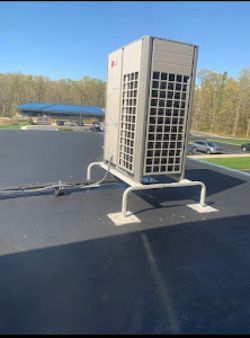
By Chuck D'Amato
•
February 7, 2025
Indoor air quality, often abbreviated as IAQ, refers to the quality of air within and around buildings and structures, especially as it relates to the health and comfort of building occupants. While it may not be something we think about often, IAQ has a significant impact on our health and well-being. It is influenced by a variety of factors, including pollutants such as dust, chemicals, and biological materials, ventilation, humidity, and temperature. Understanding indoor air quality is essential for maintaining a healthy indoor environment. Poor IAQ can lead to various health problems, including allergies, respiratory issues, and even certain types of cancer. Some of the most common sources of indoor air pollution include combustion sources like oil, gas, kerosene, coal, wood, and tobacco products; building materials and furnishings; household cleaning and maintenance products; central heating and cooling systems and humidification devices; and outdoor sources such as radon, pesticides, and outdoor air pollution. The importance of good indoor air quality cannot be overstated. It plays a pivotal role in our overall health and productivity. It is for this reason that maintaining the air quality inside buildings has become a key issue for facility managers, building occupants, and the general public. This is where HVAC systems come into play. HVAC, which stands for Heating, Ventilation, and Air Conditioning, is a system used to provide heating and cooling services to buildings. But beyond just regulating temperature, HVAC systems play a significant role in maintaining indoor air quality. By controlling the amount of outside air that is introduced into the building, HVAC systems can reduce the concentration of pollutants in the indoor air. Moreover, through filtration and dilution, these systems can remove particles, bioaerosols, and gases from the indoor air, thereby improving its quality. In sum, the role of HVAC systems in maintaining indoor air quality is crucial. They not only provide comfort in terms of temperature but also ensure that the air we breathe inside buildings is clean and safe. The Science of Indoor Air Quality Understanding Indoor Air Pollutants The science of Indoor Air Quality (IAQ) begins with identifying the pollutants that affect it. These include biological materials like mold and pollen, and chemical pollutants such as volatile organic compounds (VOCs), carbon monoxide, and nitrogen dioxide. Sources of these pollutants range from building materials and cleaning products to furnishings and outdoor air. Health Impacts of Poor Indoor Air Quality The health effects of poor IAQ are significant and varied. Short-term effects include irritation of the eyes, nose, and throat, headaches, dizziness, and fatigue. Long-term consequences can be severe, leading to respiratory diseases, heart disease, and even cancer. Vulnerable groups such as children, the elderly, and those with pre-existing conditions are particularly at risk. The Role of Ventilation in Indoor Air Quality Proper ventilation is critical in maintaining good IAQ. It dilutes and removes pollutants while controlling humidity levels to prevent mold growth. HVAC systems play a key role by regulating the intake of outdoor air, reducing pollutant concentrations, and filtering harmful particles and gases from indoor air. How HVAC Systems Improve Indoor Air Quality Air Filtration and Circulation HVAC systems improve IAQ by drawing indoor air through filters that capture dust, pollen, mold spores, and other particulates. The filtered air is then heated or cooled and redistributed, providing continuous air purification. Importance of HVAC Filters Filters vary in their efficiency, rated by the Minimum Efficiency Reporting Value (MERV). Higher MERV ratings indicate better filtration, with advanced filters like HEPA capturing 99.97% of particulates, including microscopic particles that may bypass standard filters. Ventilation and Air Purification Ventilation systems exchange indoor air with fresh outdoor air, diluting pollutant concentrations. Some HVAC units also feature built-in air purifiers using UV light, ionizers, or activated carbon filters to neutralize bacteria, viruses, and VOCs, further enhancing air quality. Choosing the Right HVAC System for Optimal Indoor Air Quality Matching System Size to Space The size of an HVAC system determines its ability to filter and circulate air effectively. An appropriately sized system ensures optimal performance without unnecessary energy consumption. Types of HVAC Systems Different systems offer unique benefits. Central systems are efficient for large areas, ductless mini-splits allow zonal control, and geothermal systems are eco-friendly, leveraging the earth’s temperature to heat or cool indoor spaces. Filter Ratings and System Compatibility Filters with higher MERV ratings capture smaller particles, improving IAQ. However, HVAC systems must be designed to handle these filters to prevent restricted airflow, which can impact performance. Maintaining Your HVAC System for Better Indoor Air Quality Importance of Routine Maintenance Regular maintenance ensures efficient operation, prevents breakdowns and maintains clean indoor air by effectively trapping dust, allergens, and other particles. Professional HVAC Cleaning Over time, dust and debris accumulate in HVAC components. Professional cleaning, including air ducts, coils, and filters, enhances efficiency and prevents pollutants from circulating indoors. Replacing HVAC Filters Filters should be replaced regularly, typically every 90 days. Homes with pets or allergy sufferers may require more frequent replacements to maintain optimal air quality. Signs of HVAC-Related Air Quality Issues Indicators of poor HVAC performance include increased dust, unusual odors, and worsening allergy symptoms. Timely maintenance and filter changes address these issues, preserving IAQ. The Future of HVAC and Indoor Air Quality Emerging HVAC Technologies Innovations like smart thermostats, sensor-based ventilation, and UVGI technologies are transforming IAQ management. These systems optimize temperature, humidity, and air purity in real-time. Sustainability and Energy Efficiency Modern HVAC designs focus on reducing energy consumption and carbon footprints while maintaining high performance and superior air quality, benefiting both the environment and homeowners. Ongoing Maintenance for Future Systems Despite technological advancements, regular maintenance, professional cleaning, and timely filter replacement remain essential to ensure efficient operation and optimal IAQ. Conclusion In conclusion, HVAC systems play an indispensable role in maintaining and improving indoor air quality. These systems, which encompass heating, ventilation, and air-conditioning functions, directly influence the air we breathe within our homes, offices, and other indoor spaces. They help regulate temperature, control humidity, and remove pollutants, thus providing a conducive environment that supports health and well-being. The advancements in HVAC technologies , including the advent of smart systems and UVGI, offer promising solutions to enhance the quality of indoor air further by facilitating real-time monitoring and control of system parameters. However, it is crucial to remember that technology is only as effective as its operation and upkeep. No matter how advanced an HVAC system is, without regular maintenance, its efficiency can significantly decline, impacting the overall indoor air quality negatively. Therefore, regular inspections, cleaning, and timely repairs are not just recommended but necessary to ensure the optimal performance of these systems and, consequently, the quality of indoor air. Looking ahead, the trend towards more sustainable and energy-efficient HVAC systems is not just a step towards environmental conservation, but also a move that could provide significant economic benefits. Nevertheless, as we embrace these eco-friendly options, it's equally important to prioritize the quality of indoor air, which directly affects our health and productivity.In final thoughts, the importance of HVAC systems in ensuring good indoor air quality cannot be overemphasized. As we continue to spend more time indoors, especially in the wake of the COVID-19 pandemic, our reliance on these systems is bound to increase. Therefore, it is incumbent upon us all to understand HVAC systems better, choose the right systems for our spaces, and commit to their regular maintenance for our health's sake. Name, Address, and Phone D'Amato Plumbing, Heating, and Cooling INC. 1200 West Blvd, Vineland, New Jersey, 08360, 856-556-3434 Social Media https://www.facebook.com/DAmato-Plumbing-Heating-530817947105755/
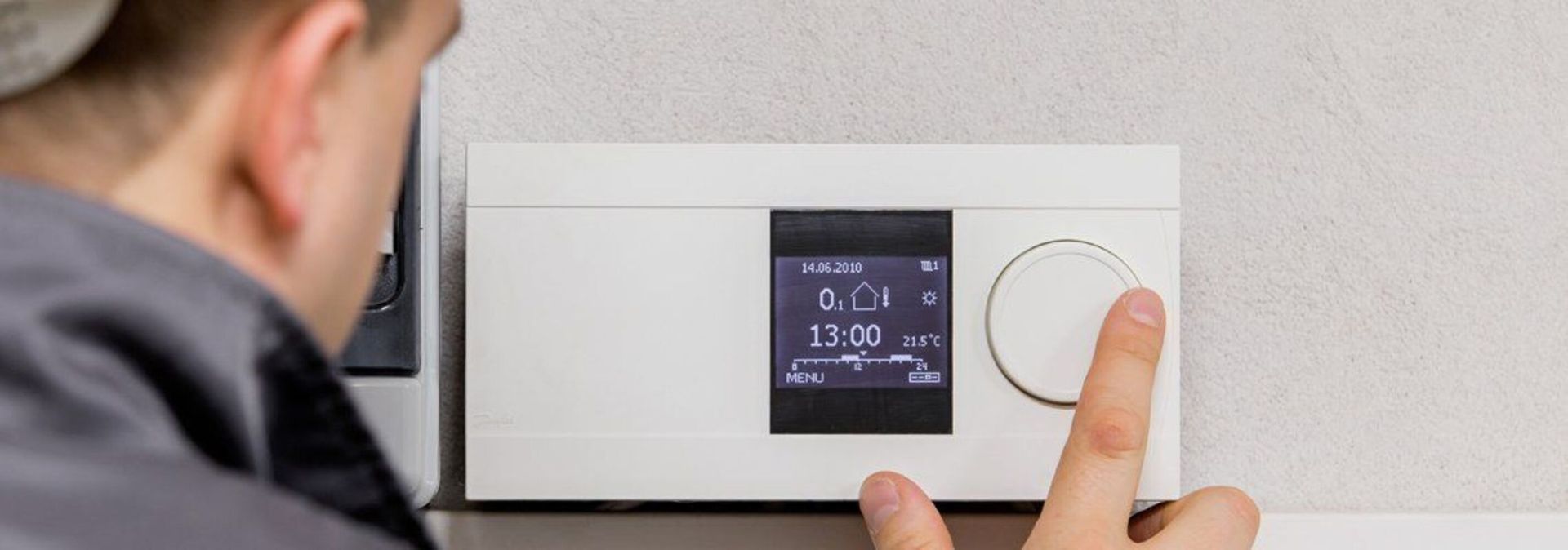
By Chuck D'Amato
•
February 7, 2025
As the seasons transition throughout the year, your HVAC system must adapt to fluctuating temperatures and weather conditions. These changes directly impact the performance and efficiency of your HVAC system. Understanding how seasonal shifts influence your system can help you maintain its efficiency, prolong its lifespan, and ensure your home remains comfortable. Whether you're considering an HVAC installation contractor in Vineland or scheduling regular maintenance, it's essential to recognize how seasonal challenges affect heating and cooling mechanisms. An HVAC system plays a critical role in maintaining indoor air quality and thermal comfort. The heating component warms your home in the winter, the ventilation ensures proper air circulation, and the air conditioning provides relief during the hot summer months. Together, these components create a harmonious system that adapts to your comfort needs year-round. However, each season presents unique challenges that can strain your system. From the frosty chill of winter to the sweltering heat of summer, your HVAC system requires consistent upkeep to meet these demands effectively. Let’s explore the intricacies of how seasonal changes impact your HVAC system and learn practical tips for ensuring it runs smoothly through every season. Understanding Your HVAC System The HVAC system is a complex arrangement of technologies designed to provide optimal indoor comfort. It comprises three primary components: Heating : Furnaces or heat pumps warm your home during colder months. Ventilation : Ensures air circulation, filters contaminants, and regulates humidity. Air Conditioning : Cools your home during warmer months. Each component has a distinct role, working together to maintain a balanced indoor environment. For instance, the thermostat acts as the control center, adjusting the system based on your preferred temperature. Ductwork circulates conditioned air throughout your home, while air filters trap dust and allergens to ensure clean air. As seasons change, your HVAC system’s workload shifts. In winter, the heating unit becomes the primary focus, while the air conditioning takes a backseat. In summer, the reverse occurs. The ventilation system, however, operates consistently to maintain air quality. Recognizing these shifts allows homeowners to plan maintenance and avoid unnecessary strain on their systems. The Impact of Seasonal Changes on HVAC Systems Winter During the winter months, your heating system works overtime to maintain a cozy indoor environment. Cold, dry air can cause components like ductwork and seals to contract, potentially leading to leaks and inefficiencies. A neglected system may consume more energy and wear down faster, necessitating costly HVAC repair services. Tips for Winter Maintenance: Replace Air Filters : Dirty filters can restrict airflow, forcing your system to work harder. Change them every 1-2 months for optimal performance. Seal Ductwork : Inspect ducts for leaks and seal them with foil tape or mastic sealant to prevent heat loss. Check the Thermostat : Ensure it’s calibrated correctly and consider upgrading to a programmable thermostat to optimize energy usage. Inspect Insulation : Add insulation to areas like attics and basements to minimize heat loss and reduce your system’s workload. Schedule a Professional Inspection : A trusted HVAC contractor Vineland can identify potential issues, such as worn components or reduced efficiency, before they lead to costly repairs. Summer In summer, the air conditioning unit bears the brunt of the workload. High temperatures and humidity levels can overburden the system, increasing the risk of breakdowns. If not properly maintained, the system may struggle to cool your home efficiently, leading to higher energy bills. Tips for Summer Maintenance: Clean the Condenser Coils : Dust and debris can accumulate on outdoor coils, reducing efficiency. Use a hose to gently clean them. Check Refrigerant Levels : Low refrigerant can hinder cooling performance. A professional AC repair company can refill and check for leaks. Inspect the Blower Motor : Ensure the motor is functioning properly to maintain consistent airflow. Dehumidify : Use a dehumidifier to reduce moisture levels and prevent mold or mildew buildup in your HVAC system. Schedule a Maintenance Check : An experienced HVAC company can optimize your system’s performance and provide targeted recommendations. Spring and Autumn Known as the "shoulder seasons," spring and autumn present opportunities for preventive maintenance. With milder temperatures, your HVAC system operates at a reduced capacity, making it an ideal time for inspections and repairs. These seasons also bring their own challenges, such as allergens in spring and fluctuating humidity levels in autumn. Tips for Spring and Autumn Maintenance: Replace Air Filters : Pollen and allergens can clog filters during spring, reducing air quality and efficiency. Clean Ducts : Remove dust and debris that may have accumulated during the off-season. Test the Thermostat : Ensure it’s functioning correctly and adjust settings to prepare for upcoming seasonal demands. Inspect Outdoor Units : Clear away leaves, twigs, and debris to prevent blockages. Schedule Preventive Maintenance : Use this time to book an inspection with reliable HVAC installation contractors to prepare for extreme weather. Maintaining Your HVAC System Throughout the Seasons Routine maintenance is essential to ensure your HVAC system performs efficiently year-round. Here’s how you can keep your system in top shape through each season: Regular Inspections: Schedule inspections at the start of each season to address seasonal demands. Before winter, ensure your heating system is ready to combat cold temperatures. Before summer, focus on preparing your air conditioning system to handle heat and humidity. Professional Servicing : While DIY maintenance is helpful, professional servicing is indispensable. Experienced technicians from an HVAC repair company can perform comprehensive checks and repairs, ensuring your system operates at peak efficiency. They can also offer insights into energy-saving practices and address issues like uneven airflow or outdated components. Preventive Measures Replace air filters regularly to maintain air quality and system efficiency. Clean ducts to prevent clogs and improve airflow. Check and calibrate thermostats for accurate temperature control. Energy-Efficient Upgrades Consider upgrading to energy-efficient components or systems. For instance, modern HVAC installation contractors offer smart thermostats, energy-efficient heat pumps, and advanced AC units that save energy and reduce utility bills. Energy Efficiency and Seasonal Changes Seasonal transitions have a significant impact on your HVAC system’s energy efficiency. Systems often consume more energy during extreme weather conditions to maintain a comfortable indoor environment. This can strain your system, leading to higher operational costs and potential breakdowns. Improving energy efficiency is key to mitigating these effects: Winter : Use a programmable thermostat to lower the temperature when you're away or sleeping. Seal windows and doors to prevent heat loss. Summer : Close blinds during the day to block out heat and use ceiling fans to circulate cool air. Year-Round : Regular maintenance, including cleaning and replacing air filters, helps your system run efficiently. Working with a trusted HVAC installation contractor can provide tailored solutions to enhance your system’s efficiency. Upgrades like energy-efficient HVAC units or improved insulation can significantly reduce energy consumption and costs. Choosing the Right HVAC Partner To ensure your HVAC system operates smoothly, it’s crucial to partner with reliable professionals. Whether you need HVAC repair services, AC repair, or a complete system overhaul, selecting the right contractor can make all the difference. Look for companies with proven expertise, transparent pricing, and excellent customer reviews. A dependable HVAC contractor will prioritize your comfort and ensure your system is tailored to your specific needs. Conclusion Seasonal changes present unique challenges to your HVAC system, from winter’s freezing temperatures to summer’s blistering heat. However, with proactive maintenance and expert assistance, these challenges can be effectively managed. Regular tune-ups, energy-efficient upgrades, and timely repairs are essential for ensuring consistent performance and longevity. For residents and businesses in Vineland, D'Amato Plumbing, Heating, and Cooling Inc. is your trusted partner in maintaining a comfortable indoor environment. With a reputation for exceptional service, this HVAC repair company offers a comprehensive range of services, including plumbing repair, AC repair, and HVAC system installation. Their experienced team ensures your system operates at peak efficiency, no matter the season. Take charge of your HVAC system today by scheduling a maintenance check or exploring energy-efficient upgrades. With the right care and expertise, your HVAC system will provide comfort and reliability all year long. Name, Address, and Phone D'Amato Plumbing, Heating, and Cooling INC. 1200 West Blvd, Vineland, New Jersey, 08360, 856-556-3434 Social Media https://www.facebook.com/DAmato-Plumbing-Heating-530817947105755/
Browse our website:
Contact Information:
Phone: 856-556-3434
Email:
damatoplumbing@gmail.com
1200 West Blvd, Vineland, NJ 08360
1200 West Blvd, Vineland, NJ 08360




Content, including images, displayed on this website is protected by copyright laws. Downloading, republication, retransmission or reproduction of content on this website is strictly prohibited. Terms of Use
| Privacy Policy

